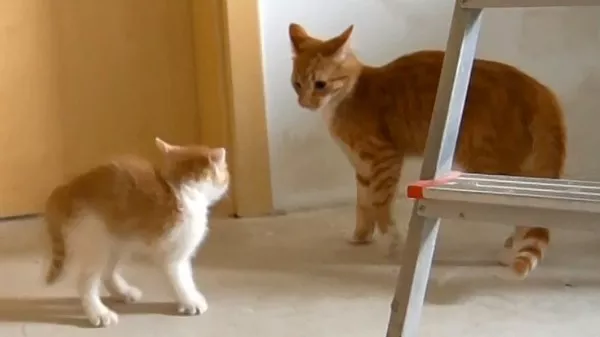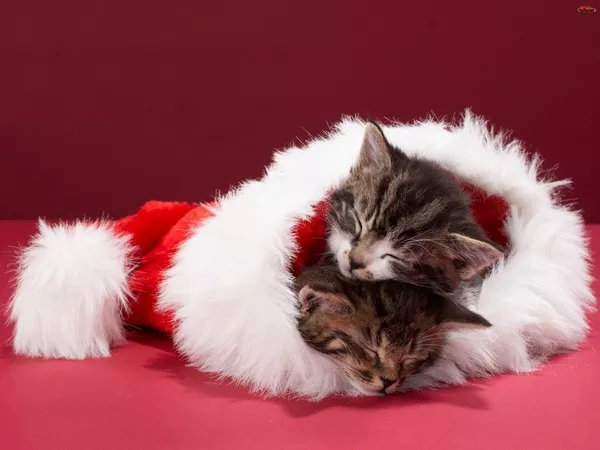Losing a beloved pet, especially when they seemed healthy and full of life, can be an incredibly traumatic experience. The sudden death of a cat leaves many owners struggling to understand what went wrong and why their once vibrant companion is no longer with them. It’s essential to recognize that the emotional impact of losing a pet unexpectedly is profound and challenging, as it often feels like a rug has been pulled out from under you. If you’re grappling with the unexpected loss of your cat, know that your grief is valid, and you’re not alone in this painful journey.
This article aims to explore some of the common causes of sudden death in cats, so you may better understand what might have happened. By recognizing potential underlying conditions and learning about preventive measures, you can approach your cat’s sudden death with more knowledge, even though the pain of loss may never fully subside. If your cat has passed suddenly, it is essential to take steps to cope with the grief and to understand how to best care for the health of other pets in the future.
Common Causes of Sudden Death in Cats
Cats are naturally good at hiding symptoms of illness, making it difficult for pet owners to detect health problems until they become severe. While some causes of sudden death are linked to chronic conditions, others can arise suddenly and without warning. Below are some of the common causes that could explain why a previously healthy cat may have passed away suddenly.
1. Heart Disease (Cardiomyopathy)
One of the leading causes of sudden death in cats is heart disease, particularly a condition known as hypertrophic cardiomyopathy (HCM). This is a hereditary disease where the heart muscles become abnormally thickened, making it harder for the heart to pump blood effectively. In some cases, the condition may not show any noticeable symptoms until the cat experiences heart failure or a blood clot blocks vital circulation, leading to sudden death.
While HCM is more commonly seen in certain breeds, it can affect any cat, even those that seem healthy. Regular veterinary check-ups are essential for diagnosing heart disease early, as treatment may help manage the condition and improve the cat’s quality of life.
2. Trauma
Another common cause of sudden death in cats is trauma. Cats can be involved in accidents, falls, or fights with other animals, which may result in internal injuries, fractures, or blunt force trauma. These injuries may cause immediate and life-threatening complications, leading to sudden death.
Trauma can also occur when cats are allowed outside and become involved in accidents with vehicles or wild animals. Even if your cat appeared to be in good health before the incident, the shock of the trauma can cause immediate death or rapidly deteriorating health.
3. Blood Clots (Thromboembolism)
In some cases, cats with heart disease or other underlying conditions may develop blood clots. A thromboembolism occurs when a blood clot blocks the flow of oxygenated blood to vital organs such as the brain, heart, or lungs. In severe cases, the obstruction can result in sudden death.
A feline aortic thromboembolism (ATE) is particularly dangerous and can occur when a clot forms in the heart and travels to the arteries. This condition is common in cats with hypertrophic cardiomyopathy and can cause a sudden, severe event such as paralysis, collapse, or sudden death.
4. Poisoning
Exposure to toxins is another potential cause of sudden death in cats. Cats are particularly sensitive to certain substances, and ingesting even small amounts of poisonous chemicals, plants, or foods can lead to severe health complications.
Some common toxins include:
Plants: Lilies, poinsettias, and azaleas are just a few examples of plants that are toxic to cats and can cause sudden, severe reactions such as kidney failure.
Household chemicals: Cleaning products, antifreeze, and insecticides can be deadly if ingested.
Human food: Foods such as chocolate, onions, garlic, and alcohol are toxic to cats and can lead to rapid illness and death.
It’s important to keep these substances out of reach of your pets and be mindful of their environment.
5. Stroke
A stroke occurs when there is an interruption of blood flow to the brain, typically due to a blood clot or rupture of a blood vessel. While strokes are more commonly associated with humans and older animals, they can also affect cats. A stroke can cause sudden changes in behavior, paralysis, loss of coordination, and in some cases, death.
Cats who experience strokes may seem disoriented, have difficulty walking, or appear lethargic. These symptoms may develop quickly and be followed by death in a matter of hours.
6. Infectious Diseases
Certain infectious diseases, such as viral infections or bacterial sepsis, can progress rapidly in cats and cause sudden death. Diseases like feline leukemia virus (FeLV) or feline infectious peritonitis (FIP) can weaken the immune system and cause severe damage to organs, leading to unexpected death.
Although vaccines can help prevent some of these infections, it’s still important to be aware of the risks, especially if your cat has been exposed to other animals that may carry these diseases.
7. Internal Bleeding
Internal bleeding is another potential cause of sudden death in cats. This can be the result of trauma, as mentioned earlier, but it can also occur due to medical conditions such as tumors, clotting disorders, or certain types of infections. Internal bleeding can be hard to detect until the situation becomes critical, leading to sudden collapse or death.
If your cat has experienced internal bleeding, they may show signs such as difficulty breathing, pale gums, rapid heart rate, or shock before dying suddenly.
Preventive Measures
While it’s impossible to predict or prevent every potential cause of sudden death in cats, there are several steps you can take to improve your cat’s health and reduce the risk of early death.
Regular Veterinary Check-ups
Routine vet visits are critical for maintaining cat health and catching potential health issues early. Cats should have an annual check-up, but senior cats or those with known health concerns may need more frequent visits. During these exams, the vet can assess your cat’s overall health, listen to their heart and lungs, check for signs of illness, and provide necessary vaccinations and preventative treatments.
Indoor Safety
Keeping your cat indoors can significantly reduce the risk of accidents, injuries, and exposure to toxins. Indoor cats are also less likely to be exposed to infectious diseases carried by other animals. Although some cats enjoy the outdoors, it’s important to weigh the risks and consider providing enrichment inside the home to keep your cat happy and healthy.
Toxin Awareness
Make your home a safe environment for your cat by removing or properly storing any toxic substances. This includes household chemicals, plants, foods, and medications. Be mindful of common items that cats may be tempted to ingest, and keep harmful substances out of reach.
Emergency Preparedness
Every cat owner should have an emergency plan in place. Know the location of the nearest emergency veterinary clinic and have the contact details readily available. In a crisis, being able to act quickly can make all the difference.
Understanding and Coping with Grief
Dealing with the sudden loss of a pet can be devastating, and it’s important to allow yourself time to grieve. Cats are deeply loved family members, and their absence can create a void in the home. If you’re struggling with the loss, consider seeking grief support through counseling or pet loss support groups.
Questions to Ask the Vet
If you’re unsure about the cause of your cat’s sudden death, ask your veterinarian about having a necropsy (animal autopsy) performed. This procedure can provide you with a better understanding of what led to your cat’s passing. Common questions to ask the vet include:
- What did the necropsy reveal about the cause of death?
- Could there have been any warning signs I missed?
- Were there any underlying conditions that contributed to the sudden death?
Conclusion
The sudden loss of a cat is a heart-wrenching experience, and understanding the possible causes can provide some comfort during a difficult time. While there’s no way to predict every scenario, being proactive about cat health, providing regular veterinary care, and creating a safe environment can help reduce the risk of unexpected tragedies. Take the time to grieve, seek support, and remember the positive moments you shared with your cat.
Related Topics

























